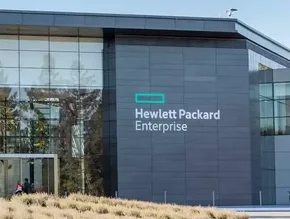Multi-million 6G investment to build digital infrastructure

With the 6G era on the horizon, Ericsson has announced a multi-million investment focused on the next generation of networking, from cognitive networks and artificial intelligence (AI) to energy efficiency.
Expected to be commercially available in the 2030s, 6G will bring network connectivity to the next level: from smart cities, farms or factories and robotics. It will connect the physical world to our own human world, thanks to the massive scale deployment of sensors and artificial intelligence and machine learning (AI/ML) with digital twin models and real-time synchronous updates.
Ericsson has announced plans to establish a new research unit in the UK with the intention of boosting the country’s future wireless connectivity capabilities.
In a 10-year programme focusing on 6G research and breakthrough innovations, research areas will include network resilience and security, artificial intelligence, cognitive networks and energy efficiency – all considered to be key building blocks of the world’s future digital infrastructure for society, industries and consumers.
Ericsson said the program will employ 20 dedicated researchers and support additional PhD students who will work alongside leading academics, CSPs and industry partners to lead 6G research projects that contribute to the development of global technology, network innovation and new product solutions.
6G to merge the physical and digital worlds with variety of use cases
6G is expected to become available in the 2030s, building on societal, consumer and industry use-case mobile connectivity breakthroughs enabled by the high-end capabilities of 5G. It is anticipated that 6G will merge the digital and physical world, contribute to a more intelligent, sustainable and efficient society and help deliver new use cases that include multi-sensory extended reality, precision healthcare, smart agriculture, cobots, and intelligent autonomous systems.
The announcement of research investment in the UK builds on Ericsson’s long history at the heart of the country’s telecommunications industry and supports the Government’s ambition to be a leader in the development of future communications and global standards.
Katherine Ainley, CEO, Ericsson UK & Ireland, says: “Ericsson has been connecting the UK for more than 120 years and this new investment underlines our ongoing commitment to ensure the country remains a global leader in the technologies and industries of the future.
“Our vision for a more connected, safer and sustainable world is one that is shared by the UK government, and we look forward to working together with network operators, industries and academia to develop international standards that will move us ever closer to achieving seamless global connectivity and truly groundbreaking innovation.”
Magnus Frodigh, VP & Head of Ericsson Research, says: “Ericsson is at the forefront of global research, innovation and developing open standards that will underpin a future of limitless connectivity and new technologies. Establishing a research program in the UK means the country will be well positioned to utilise its existing high international level of knowledge in wireless systems and technologies to produce ground-breaking 6G research that not only can help shape the future of global standards but also deliver a more connected, efficient and sustainable society.”
Ericsson’s announcement follows an announcement by Nokia that it is to lead a 6G project in Germany, called 6G-ANNA, which will deliver technologies that ‘augment human potential’.
Part of the larger “6G Platform German” national initiative, which has a total volume of €38.4mn with a duration of three years, the Finnish telecommunications provider will focus on designing an end-to-end 6G architecture and work with other project partners on three key technology areas: 6G access, network of networks, and automation and simplification.
Nokia Bell Labs expects 6G to launch commercially by 2030. Standardisation phase 1 will likely start from 2025, leading to the first 6G specification in 3GPP Release 21 by 2028. It will be followed by commercial deployments around 2030. To make 6G a reality in the industry before 2030, Nokia is leading Hexa-X, the European Commission’s 6G flagship initiative for research into the next generation of wireless networks.
- Flexential: Momentum Report Highlights Hybrid IT InnovationCloud & Cybersecurity
- Microsoft & Alphabet: AI and Cloud Strategy Driving SuccessIT Procurement
- Dell Technologies: Firms Expect AI to Transform IndustriesAI & Machine Learning
- Coca-Cola & Microsoft Partner to Accelerate Cloud and Gen AICloud & Cybersecurity






